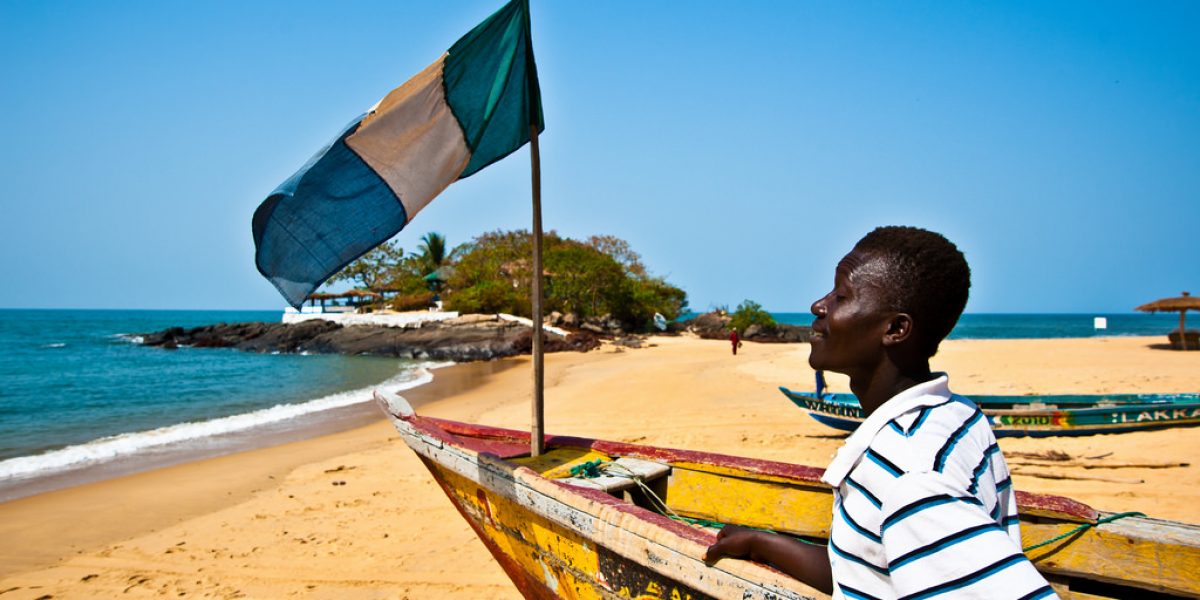A decision by the Swedish parliament to allow former Liberian president Charles Taylor to be imprisoned in Sweden if he is convicted of war crimes has removed a major blockage to a trial in The Hague.
Taylor’s trial by the United Nations-backed Special Court for Sierra Leone has been stalled on several counts following his extradition in March from exile in Nigeria.
He faces 11 charges of war crimes and crimes against humanity, including murder, rape and funding rebel fighters in Liberia’s neighbour Sierra Leone, who terrorised civilians by hacking off hands, feet, ears and lips.
Normally such a trial would take place at the Special Court’s headquarters in Freetown, the Sierra Leonean capital. But the court, fearing that trying this powerful figure in Africa might endanger regional stability, has asked the International Criminal Court, ICC, to host the Taylor trial at its high-security facilities in The Hague.
Charles Taylor’s name still evokes extreme fear throughout West Africa, where he conducted a reign of terror both in Liberia and by proxy in neighbouring countries, conscripting schoolchildren to maim, pillage and murder. Even now, he wields significant financial and political influence in the region, with several supporters holding high-ranking positions in Liberia’s fledgling democratically elected government.
Taylor also has a record of escaping from incarceration several times, on one occasion from a prison in the United States where he was awaiting extradition. Liberia’s request for him to be extradited was almost thwarted when Taylor tried to flee from Nigeria to Cameroon in late March, and he was only apprehended at the border.
Apart from the danger that he could escape again, there are real fears that even in captivity in Sierra Leona, his very presence would destabilise the fragile peace in the region.
The Liberian government, which formally requested the Nigerian authorities to hand Taylor, quickly dispatched him to Sierra Leone. The jubilation expressed by human rights activists when Taylor was finally handed over to the Special Court, which had issued a warrant for his arrest in 2003 while he was still Liberian president, has been dissipated by the obstacles which have arisen to a speedy trial.
The Swedish parliament’s decision on May 31 will help speed up the process. The Dutch government was only prepared to host the trial on condition that a third country agreed to imprison the accused if a conviction was secured.
Liberian president Ellen Johnson-Sirleaf, on a visit to Britain, gave her backing to a trial outside Africa, explaining that “a little bit of distance gives us [Liberians] a little more comfort”.
In a veiled reference to Taylor’s continued support base, the president, elected in November 2005, noted, “There are too many risks associated with an overbearing presence.”
The trial has also been held up by arguments from Taylor’s defence counsel that he will not get a fair trial in the Netherlands, as well as by bureaucratic delays resulting from personnel changes at the Special Court. The court’s appeals chamber recently dismissed a motion by Taylor’s British lawyer, Karim Khan, to withdraw the request for a change of trial venue. In the interim, chief prosecutor Desmond Da Silva, who submitted the request, resigned. There was also a change in the court’s ruling body, the presidency. The new president, Sierra Leonean judge George King, assumed his duties on May 27 and is expected to make a final decision on the trial venue soon.
The venue issue has polarised opinion in the region. Some want a trial in Freetown, saying Africans must see justice being done, and that the victims and families have a right to be present during hearings on the crimes of which the former Liberian leaders stands accused.
In a recent opinion piece in the New York Times, John Leigh, Sierra Leone’s former ambassador to the United States, argued that “witnessing the proper administration of justice will render us Africans better able to protect our rights and more reliant on democratic principles rather than on superstitious beliefs”. A Freetown trial, he said, would “drive home the democratic principle that no one is above the law”.
Indeed, it was for precisely these reasons that the Sierra Leone court, unlike the international tribunals for Rwanda and the former Yugoslavia, was set up in the country where the crimes took place.
When the Sierra Leone court was established in late 2002 with a three-year mandate, it was also hoped that this “hybrid” court – combining international and domestic law – would operate more speedily than the two tribunals. But so far it has failed to live up to expectations.
The court’s sluggishness came under fire when Taylor’s Sierra Leonean ally Foday Sankoh died in July 2003 while awaiting trial. Sankoh was responsible for kick-starting Sierra Leone’s civil war in 1991, and was notorious for his cruelty and for inciting his troops to mutilation, torture and cannibalism.
The death from natural causes of the Special Court’s number one indicted suspect before he was brought to trial was a major blow. David Crane, chief prosecutor at the time, commented that Sankoh received the “peaceful end that he denied to so many others”.
The court began holding trials in June 2004 but has been hamstrung by funding constraints and the lack of adequate infrastructure in war-damaged Sierra Leone. A report by the US-based watchdog Human Rights Watch acknowledges that “the court has made tremendous achievements on scarce and insecure resources”, especially in terms of outreach and witness protection.
In making a final decision on a venue for Taylor’s trial, Justice King will need to weigh all these factors carefully. He has already gone on record stating that the Special Court needs more time and more funding, and that “any thought of the court ending this year or even in 2007 is unrealistic”.
Amnesty International has warned that a change of venue will require further human and financial resources, and that this should only be considered if the international community cannot provide effective security for proceedings in Sierra Leone.
Unlike the war crimes tribunals for Rwanda and the former Yugoslavia, which are directly financed by UN member states, the Sierra Leone court operates on voluntary funding from a few countries. As of last month, the court had received less than half of its 25 million US dollar budget for the year.
At the same time, King will need to recognise the need for a speedy resolution to the dilemma, so that a trial can get under way soon. Following the death in custody of former Yugoslav president Slobodan Milosevic earlier this year, the reputation of the international justice system will be significantly damaged if Taylor is allowed to languish without trial for much longer.






